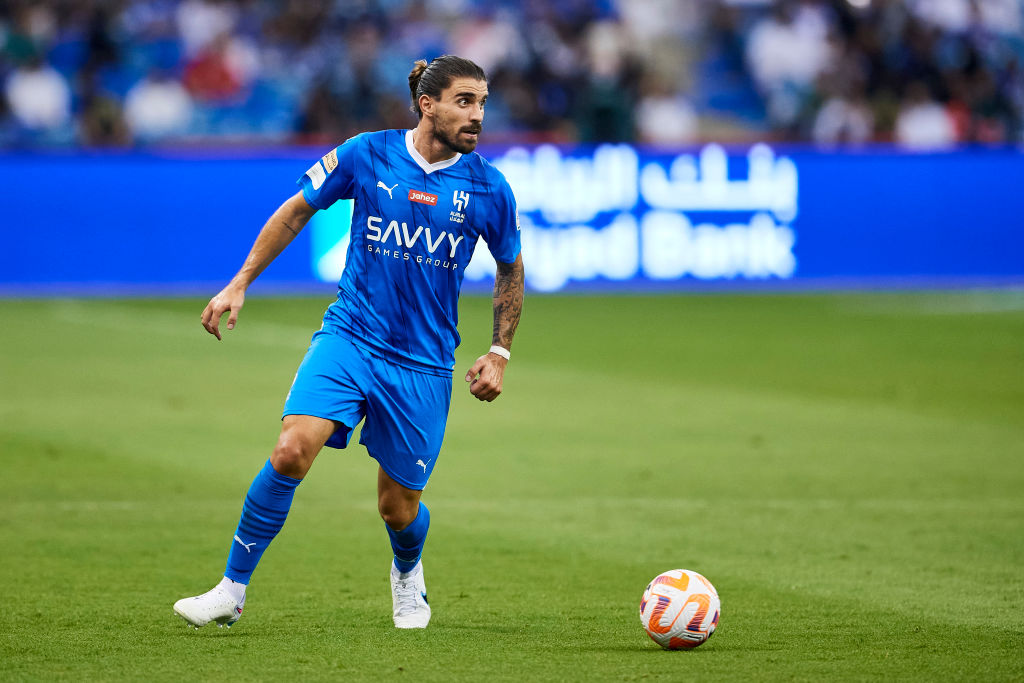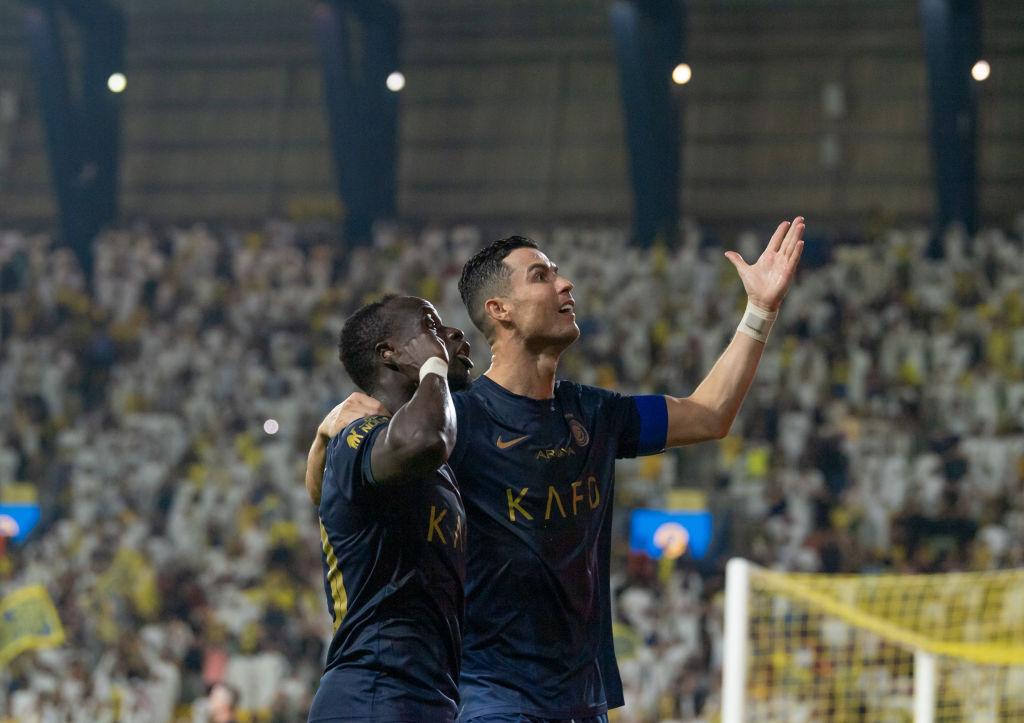Is Premier League loan ban really aimed at Newcastle United and Ruben Neves?

Premier League teams could ban loans from sides who form part of the same multi-club network in the January transfer window – a move seen by some as targeting Newcastle United.
But with the majority of clubs in the English top division now sharing owners with teams elsewhere in world football, the move clearly has implications that reach far beyond Tyneside.
So is the proposed ban a direct response to Saudi-owned Newcastle, or part of a wider strategy to get to grips with the thorny and rampant issue of multi-club ownership?
How will the ban affect Premier League teams in multi-club networks?
The proposal would prevent any English top-flight club from signing players on loan from any other team that they have an association with in the January transfer window.
It has been suggested for integrity reasons – in other words, to stop team owners from using their connections to other clubs to gain an unfair advantage, for instance by trafficking players from one of their outfits to their Premier League side on the cheap.
And the reason why Newcastle are being seen as the catalyst for this move is because they are reported to be considering loaning in Portugal midfielder Ruben Neves from Saudi Pro League Al-Hilal as cover for Sandro Tonali, who has begun a 10-month ban for betting offences.
Al Hilal is one of four Saudi Pro League teams that were acquired this year by the country’s Public Investment Fund, which bought 80 per cent of Newcastle two years ago.
Which Premier League teams are part of multi-club networks?
It’s quicker to list the ones that aren’t, as 12 of the 20 current teams are implicated in multi-club ownership. This does not mean that their owners hold a majority in more than one team, merely that an entity has a stake in multiple teams.
Arsenal (Owners KSE also owns Colorado Rapids)
Aston Villa (Owners V Sports have a minority stake in Vitoria Guimaraes and partnerships with Vissel Kobe and ZED FC)
Bournemouth (Owners Black Knight Football have a minority stake in Lorient)
Brighton (Owner Tony Bloom has a minority stake in Union Saint-Gilloise)
Chelsea (Owner BlueCo majority owns Strasbourg)
Crystal Palace (Co-owner John Textor’s Eagle Football majority owns Lyon, Botafogo and Molenbeek; co-owner David Blitzer owns Real Salt Lake and his Global Football Holdings has stakes in Augsburg, Brondby, Estoril, Alcorcon, Den Haag and Beveren.
Liverpool (Owners Fenway Sports Group is part-owned by RedBird Capital Partners, which owns AC Milan and Toulouse)
Manchester City (Owner City Football Group majority owns New York City, Melbourne City, Sichuan Jiuniu, Mumbai City, Lommel, Troyes, Palermo and Bahia, has minority stakes in Girona, Yokohama F. Marinos, and has a partnership with Club Bolivar)
Newcastle (Owner the Public Investment Fund majority owns Al Ahli, Al Ittihad, Al Hilal and Al Nassr)
Nottingham Forest (Owner Evangelos Marinakis also owns Olympiacos)
Sheffield United (Owner Abdullah bin Musaid Al Saud’s United World Group also owns Beerschot, Al-Hilal United, Chateauroux and Kerala United)
West Ham (Co-owner Daniel Kretinsky is a minority shareholder in Sparta Prague)
Others could soon join their ranks, notably Everton, whose prospective buyers 777 Partners majority own Hertha Berlin, Genoa, Red Star, Standard Liege and Vasco da Gama and have minority stakes in Sevilla and Melbourne Victory.
Should Sir Jim Ratcliffe complete a minority investment in Manchester United they would join a portfolio that also includes Nice and Lausanne, while Qatar Sports Investments have discussed adding a stake in Tottenham Hotspur to their ownership of Paris Saint-Germain and holding in Braga.
Which teams will be most affected if the new rule is voted in?
While most Premier League teams are now part of multi-club networks, they tend to sit at the top of the food chain in those organisations and therefore are more likely to loan players out to sister sides than bring in their talent on a temporary basis.
It has happened, for instance when Frank Lampard joined Manchester City on loan from New York City during the 2014-15 season, but it is rare and would probably not affect the January transfer window plans of any club – apart from Newcastle.
As the Lampard example shows, players being loaned to the Premier League from teams in the same network is not a new phenomenon, but the rapid rise in multi-club ownership means there is now a greater possibility.

The timing is interesting, however, coinciding with rumours of Neves joining Newcastle on loan just six months after Al Hilal paid £47m to sign him from Wolves, which is why some have concluded that it is a measure aimed squarely at the Magpies.
It would not be the first time that their Premier League rivals had sought to change regulations mid-season in order to prevent Newcastle from exercising powers that come with being owned by a sovereign wealth fund worth £500bn.
Months after the PIF takeover of Newcastle, clubs voted to bring in an interim measure aimed at preventing owners from funnelling extra cash into their teams via inflated sponsorship deals from other companies that they owned.
According to reports, the loan move vote is part of a wider discussion about the abuse of multi-club ownership and not just aimed at those in the North East, but it is not difficult to see why they might have reached that conclusion.
What happens now?
The vote on banning incoming loans from associated clubs in January is scheduled to take place at a meeting of Premier League stakeholders on 21 November. It will require a majority of 14 out of the 20 clubs to vote in favour in order for it to come into effect.
It is, though, only a temporary measure and the expectation is that discussions about a permanent ban on such deals – perhaps including a moratorium of, say two years after a transfer before a player can be loaned to a related club – will rumble on.
